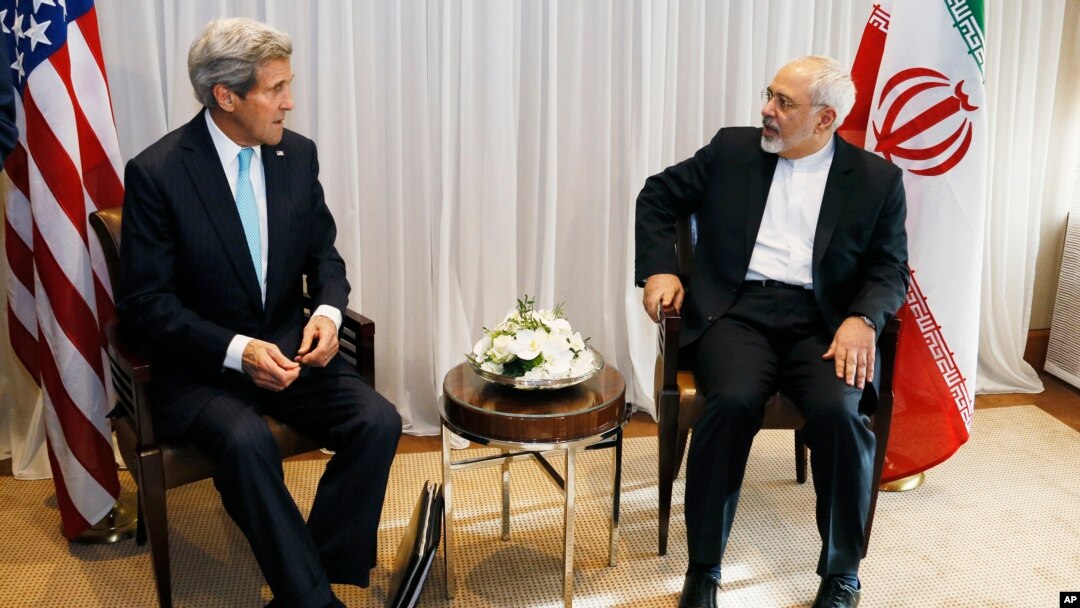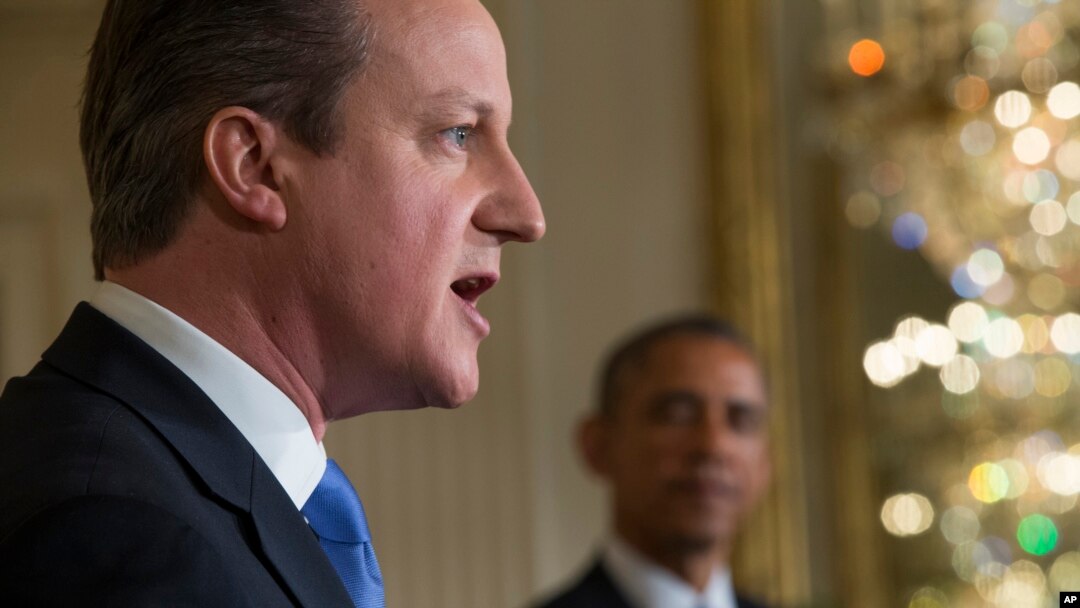President Barack Obama is calling on the U.S. Congress to hold off slapping new sanctions on Iran, saying penalties at this point could derail nuclear negotiations and raise the risk of war.
The president’s warning came after two days of meetings with visiting British Prime Minister David Cameron. The two leaders agreed that with talks providing a chance for a diplomatic solution to curb Iran's nuclear program, now would be the wrong time to apply sanctions that some members of Congress want.
“I respectfully request them to hold off for a few months to see if we have the possibility to solve a big problem without potentially resorting potentially to war,” Obama said at a joint news conference with Cameron at the White House.
The president said he would veto any bill calling for new sanctions at this point.
Cameron agreed and said he has - on this visit - personally asked some members of Congress not to support sanctions. Cameron said it would not be right for a British leader to tell U.S. lawmakers what to do.
“But simply to make the point as a country that stands alongside America in these vital negotiations that it's the opinion of the United Kingdom that further sanctions or further threat of sanctions at this point won't actually help to bring the talks to a successful conclusion, and they could fracture the international unity that there's been which has been so valuable in presenting a united front to Iran,” he said.
But if diplomacy fails, Obama repeated his stance that "all options" for dealing with Iran are on the table.
Even if a deal is reached, he said the West still has "a whole bunch" of problems with Iran, including state-sponsored terrorism, Iran's rhetoric toward Israel and financing of Hezbollah, as well as differences over Syria.
The U.S., Britain and four other world powers - China, France, Germany and Russia - are trying to reach a final deal on Iran's nuclear program by a July 1 deadline. The talks were extended after a November deadline was missed.
Obama said he still maintains that the chance of a diplomatic agreement is probably less than 50 percent.

U.S. Secretary of State John Kerry, left, waits with Iranian Foreign Minister Mohammad Javad Zarif before a meeting in Geneva, Switzerland, Jan. 14, 2015.
Earlier in Paris, U.S. Secretary of State John Kerry met with his Iranian counterpart Javad Zarif for talks on Tehran's nuclear program, after discussions on the issue earlier this week in Geneva. A State Department official said Kerry met with Zarif in Paris for approximately an hour and that they agreed to stay in touch and plan to meet again in the coming weeks.
Kerry was in Paris to honor the victims of last week's terror attacks
The so-called P5 plus 1 countries want Iran to scale back its uranium enrichment program to keep it from being able to build a nuclear bomb. In exchange, sanctions against Iran would be lifted.
The United States, its European allies and the United Nations have already imposed a series of sanctions on Iran aimed at getting it to curb nuclear activities that could be used to build a nuclear bomb. Iran insists on a right to enrich uranium but denies it seeks nuclear weapons.
On Thursday, German Foreign Minister Frank-Walter Steinmeier said the nuclear talks with Iran were in a "decisive phase" and that no more time could be wasted. He said extensions to a temporary agreement could not continue indefinitely.
VOA's Pam Dockins contributed to this report from Paris


